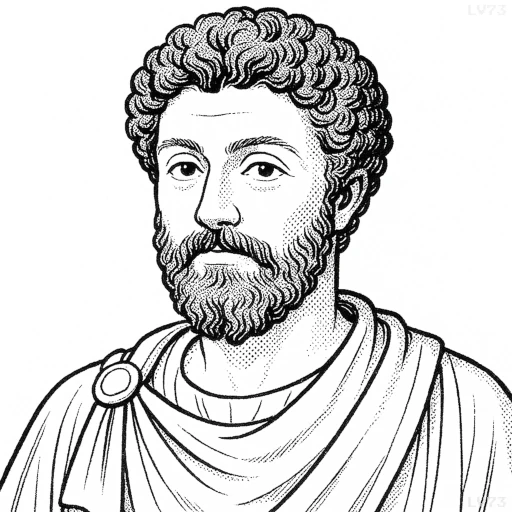“A man should be upright, not be kept upright.”

- April 26, 121 – March 17, 180
- Roman Empire
- Roman Emperor
table of contents
Quote
“A man should be upright, not be kept upright.”
Explanation
In this quote, Marcus Aurelius emphasizes the importance of personal integrity and self-motivation. He suggests that a person should act with virtue and self-discipline, rather than relying on external forces or others to maintain their moral or ethical behavior. The idea is that true uprightness comes from within—through conscious effort to live with honesty, responsibility, and rational thought—not from being constantly guided or restrained by others.
This philosophy aligns with the Stoic belief that a person’s moral character must be shaped by self-governance and internal strength. For Aurelius, who faced the burdens of ruling an empire, this wisdom was vital in navigating the pressures of leadership and personal challenges. His Stoicism taught that one should not wait for others to dictate what is right, but rather act according to virtue and reason, regardless of external circumstances.
In modern life, this quote serves as a reminder that personal responsibility is key to living authentically. Instead of relying on others or societal pressure to guide our actions, we are called to develop our own moral compass and stay true to our values. For instance, in challenging situations—whether in work, relationships, or personal growth—we must strive to make decisions that align with our core principles, rather than depending on others for direction or approval. By being upright in our actions, we create our own sense of moral clarity and inner strength.
Would you like to share your impressions or related stories about this quote in the comments section?

